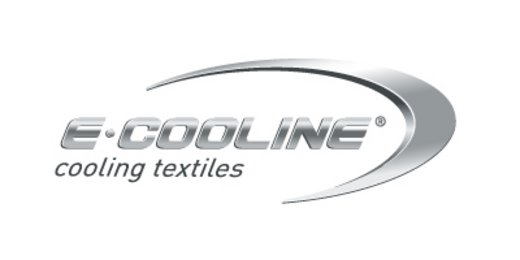Best practice examples
Results 131 to 140 of 148

Best practiceSuccess story: Industry Platforms for the HVAC&R Industry
Leading platforms with a mix of news, products and knowledge to accelerate the development of natural refrigerant-based technology within the HVAC&R industry worldwide. The industry platforms R744.com, ammonia21.com, hydrocarbons21.com and R718.com aim to accelerate the worldwide development of natural refrigerant-based technology within the HVAC&R industry worldwide. With a unique mix of News and Products, including a knowledge section on the use of natural refrigerants, they attract 12,000+ regular readers including CEOs, Technical Directors, Refrigeration Engineers, Marketing and Sales Managers, Policy Experts and more. …
Best practiceSuccess story: Parilla Potato Cold Storage Facility
In 2012/2013, Glaciem Cooling Technologies in collaboration with the University SA Barbara Hardy Institute and Alltech Refrigeration launched the Parilla Potato Project. Parilla Potatoes is a large, refrigerated storage facility located in South Australia. The basis for the design of the Parilla Potato Project is a secondary refrigeration system that uses a critically charged ammonia chiller as the primary refrigerant and Dynalene HC30 as a secondary refrigerant. Moreover, the design also includes the use of a Thermal Storage System using Phase Change Material (PCM). The PCM is cooled by the primary ammonia plant overnight using off peak electricity, and the Dynalene uses the thermal storage of the PCM to provide refrigeration during peak operating hours. In 2014, the system won the AIRAH Best HVAC&R Retrofit/Upgrade award. …
Best practiceSuccess story: Phase-out of HCFC-141b
Between July 2011 and 2014, Walton phased out the use of HCFC-141b in its manufacturing of insulation foam for domestic refrigerators, resulting in savings of 183.7 MT of HCFC-141b in Bangladesh. At the 62nd Meeting of the Executive Committee of the Montreal Protocol, the Multilateral Fund approved Walton’s project to convert its HCFC-141b foam production line to the environmentally-friendly cyclopentane technology. The projected was funded by the United Nations Development Program. …
Best practiceSuccess story: Solar thermal cooling system for leading South African mobile operator
Industrial Solar has installed a Fresnel Collector system for the leading South African mobile network operator Mobile Telecom Networks (MTN) in Johannesburg. The project falls under the global “Solar Roofs Program” which was launched by the Deutsche Energie-Agentur (dena) in 2004 and co-financed by the German Federal Ministry of Economics and Technology (BMWi). The goal of the Solar Roofs Program is to install demonstration projects on the roofs of designated institutions around the globe. Comprehensive marketing and training programs accompany the installation. A Fresnel Collector System is a linear concentrating solar thermal collector optimized for industrial use. The system has a thermal peak power of 272 kW and an absorption chiller with a capacity of 350 kW. The cold is directly delivered into the local cooling network, hereby reducing fossil fuel consumption and CO2 emissions. …
Best practiceSuccess story: Solar-powered cooling in the German Jordanian University
Amman, October 2016: After 4 years of careful planning and developing, GIZ and the Jordanian Ministry of Environment (MoEnv) have successfully completed the solar cooling project at the German Jordanian University. The university in Amman now relies on a solar-powered cooling system that operates with a high reliability and environmental effectiveness, reducing electricity consumption for cooling by 15%. The project demonstrates the feasibility of environmentally-friendly technologies in Jordan, hereby promoting the reduction of CO2 emissions in line with the new Renewable Energy & Energy Efficiency Law, the phasing out of hydrochlorofluorocarbons (HCFCs), and Jordan’s scoping study on Green Economy. With several stakeholders from Germany and Jordan, the project promotes the cooperation between its different partners such as technology providers, German and Jordanian research institutions and Jordanian chiller manufacturers. …
Best practiceSuccess story: Solar-powered cooling in the German Jordanian University
Amman, October 2016: After 4 years of careful planning and developing, GIZ and the Jordanian Ministry of Environment (MoEnv) have successfully completed the solar cooling project at the German Jordanian University. The university in Amman now relies on a solar-powered cooling system that operates with a high reliability and environmental effectiveness, reducing electricity consumption for cooling by 15%. The project demonstrates the feasibility of environmentally-friendly technologies in Jordan, hereby promoting the reduction of CO2 emissions in line with the new Renewable Energy & Energy Efficiency Law, the phasing out of hydrochlorofluorocarbons (HCFCs), and Jordan’s scoping study on Green Economy. With several stakeholders from Germany and Jordan, the project promotes the cooperation between its different partners such as technology providers, German and Jordanian research institutions and Jordanian chiller manufacturers. …
Best practiceSuccess story: Sure Chill refrigerators for Yemen vaccination campaign
A number of refrigerators with the latest Sure Chill technology will be used during immunization campaigns in 11 regions of the United Arab Emirates, hereby strengthening the country’s healthcare sector. The patented Sure Chill cooling technology enables medical refrigerators to store vaccines adequately without power for ten days or more. This technology was selected by the Emirates Red Crescent as one of 30 companies from 2271 entries aimed at tackling Yemen’s health crisis. The solar-powered vaccine refrigerators were manufactured by Godrej Appliances and delivered to the Public Health and Population Office …
Best practiceSuccess story: The Fridge Factory conversion project
With the support of GIZ Proklima, in 2008 the Fridge Factory was the first refrigeration manufacturer in the sub-Saharan region to convert its production line to natural refrigerant-based technologies. During the 3-year project, the Fridge Factory converted its entire domestic and commercial production line to operate with hydrocarbon refrigerants, with an annual production of approx. 60,000 appliances. Every sold unit replaces the use of fluorinated refrigerants, hereby avoiding an equivalent of 250 kg of CO2 of direct emissions during the lifetime of a unit. Moreover, the new appliances save more than 20% energy consumption compared to conventional units, hereby reducing electricity costs. The conversion to modern technologies strengthens the Fridge Factory’s market position against environmentally-damaging imports. Moreover, qualifying the engineering and technical staff to work with the new technology helps secure and maintain around 500 jobs. …
Best practiceSuccess story: The Fridge Factory conversion project
With the support of GIZ Proklima, in 2008 the Fridge Factory was the first refrigeration manufacturer in the sub-Saharan region to convert its production line to natural refrigerant-based technologies. During the 3-year project, the Fridge Factory converted its entire domestic and commercial production line to operate with hydrocarbon refrigerants, with an annual production of approx. 60,000 appliances. Every sold unit replaces the use of fluorinated refrigerants, hereby avoiding an equivalent of 250 kg of CO2 of direct emissions during the lifetime of a unit. Moreover, the new appliances save more than 20% energy consumption compared to conventional units, hereby reducing electricity costs. The conversion to modern technologies strengthens the Fridge Factory’s market position against environmentally-damaging imports. Moreover, qualifying the engineering and technical staff to work with the new technology helps secure and maintain around 500 jobs. …

Best practiceThe air conditioning system to wear
Employees suffer from heat at their workplaces. Consequently, health problems and accident rates increase. But also the companies suffer from losses of productivity caused by heat. Stay cool at work with E.COOLINE cooling vests, cooling headgear as well as arm and leg coolers when temperatures rise over 26°C. This works at working places outdoors and indoors. The temperature load can be decreased by up to 12 °C on the skin which leads to a lower body core temperature and better health. In the meantime insurances as well as working associations recommend this alternative to air conditiong systems or other harmful technical solutions. Especially outdoors it is the only possibility. With the products of E.COOLINE you can not only save up to 90% CO2 compared with air conditioning systems but you use a carbon neutral product also at workplaces outdoors. …
